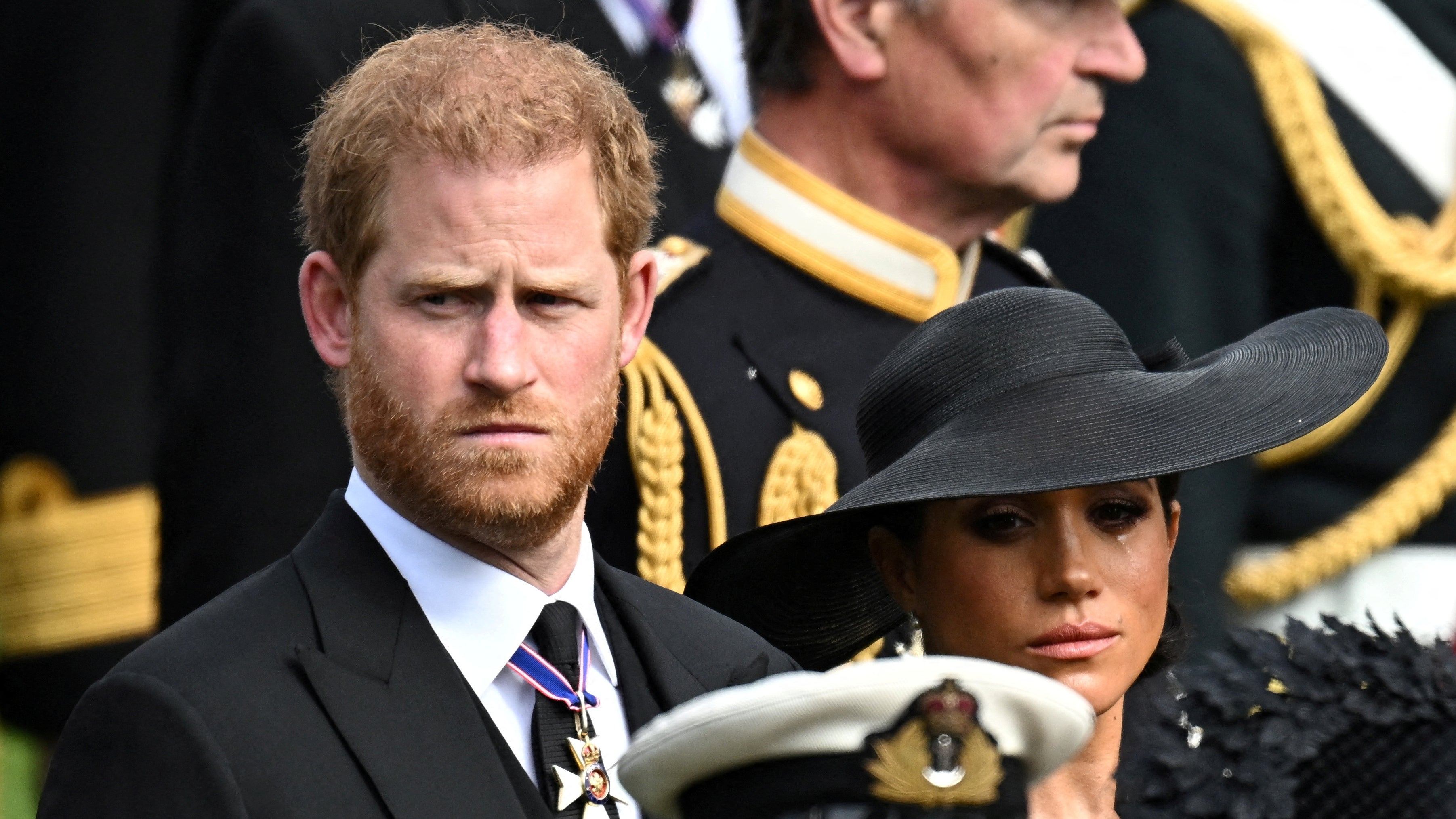Peers question how Harry and Andrew can stand in for King despite not being ‘working’ royals
Government urged to consider whether a stand-in for the King should be ‘somebody who actually undertakes royal duties’

Your support helps us to tell the story
This election is still a dead heat, according to most polls. In a fight with such wafer-thin margins, we need reporters on the ground talking to the people Trump and Harris are courting. Your support allows us to keep sending journalists to the story.
The Independent is trusted by 27 million Americans from across the entire political spectrum every month. Unlike many other quality news outlets, we choose not to lock you out of our reporting and analysis with paywalls. But quality journalism must still be paid for.
Help us keep bring these critical stories to light. Your support makes all the difference.
Members of the House of Lords have challenged the future of Prince Andrew and Prince Harry — two non-working members of the Royal family.
The Duke of Sussex and Duke of York’s roles as counsellors of state were questioned during a lengthy discussion in the House of Lords on Tuesday.
The government was asked to consider whether the person who stands in for the monarch should be “somebody who actually undertakes royal duties”.
Prince Harry stepped down as a working royal in 2020 with his wife Meghan Markle, and Prince Andrew was forced to retreat from public life as a royal after an allegation involving sex abuse.
The members of the House of Lords have tried to convince King Charles III to get the government to make amends to the Regency Act 1937 to ensure the royals can’t step in as regents.
“The House knows that the Regency Act is still very relevant, it is the only reason why it was possible to open the current Session of this Parliament. Indeed, when you look at the final year of Her late Majesty’s reign, there were elements of a regency about it,” said Labour peer Viscount Stansgate.
“Does the minister not think it is time to approach the King to discuss the potential amendment of this Act, and in particular Clause 6, which at the moment defines regents in relation to their line of succession to the Crown?” he added.
“Otherwise, are the government happy to continue with a situation where the counsels of state and regency powers may be exercised by the Duke of York or the Duke of Sussex, one of whom has left public life and the other of whom has left the country?”
Lord Addington also asked the government to indicate if they would “at least consider that the person they go to in the first consideration will be somebody who actually undertakes royal duties, or at least some part of them, at present”.
It was reported last month that the King might consider rewriting the 85-year-old law, which would mean Prince Andrew and Prince Harry could lose their “stand-in status” as counsellors of state.
Under current rules, the two princes and Princess Beatrice can be called on as counsellors of state to temporarily deputise for King Charles III if he is unable to carry out official duties due to illness or absence abroad.
This is because, under the Regency Act 1937, counsellors of state include the sovereign’s spouse and the next four people in the line of succession who are over the age of 21.
But last month, it was reported that the King was considering rewriting the law to prevent non-working royals from being counsellors of state. So far, however, nothing of the sort has happened.
During the discussion in the House of Lords, Lord Addington reiterated that working royals, or “somebody who actually undertakes royal duties”, should be given priority for these roles.
“The government will always consider what arrangements are needed to ensure resilience in our constitutional arrangements,” Conservative peer Lord True argued.
“And in the past, we have seen that the point of accession has proved a useful opportunity to consider the arrangements in place.”
Subscribe to Independent Premium to bookmark this article
Want to bookmark your favourite articles and stories to read or reference later? Start your Independent Premium subscription today.



Join our commenting forum
Join thought-provoking conversations, follow other Independent readers and see their replies
Comments